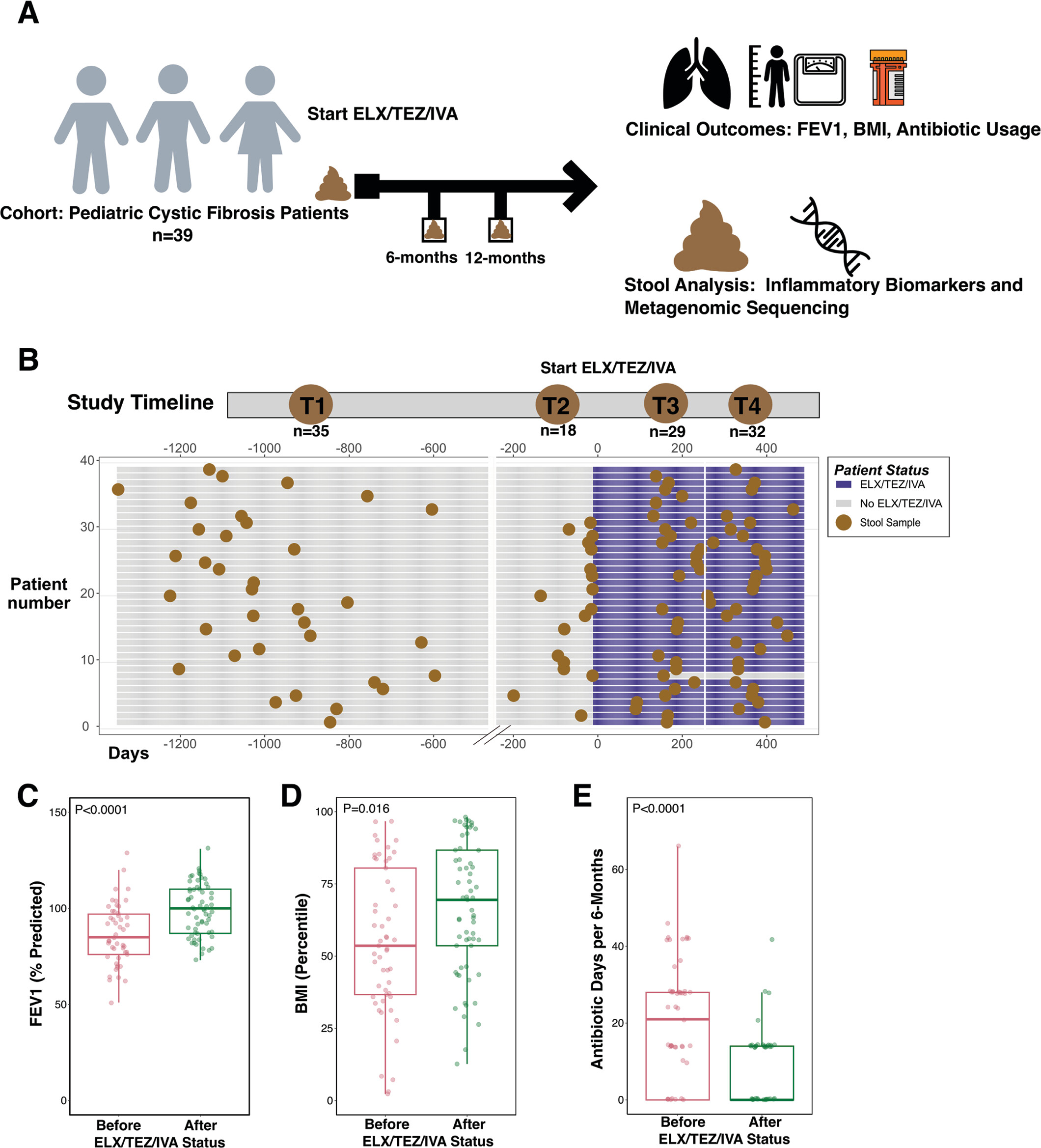💡 This single-center longitudinal analysis investigates the effects of ELX/TEZ/IVA on the intestinal microbiome, inflammation, and clinical parameters in children with cystic fibrosis (CF). The study reveals significant improvements in body mass index (BMI), forced expiratory volume in one second (ppFEV1), and a reduced need for antibiotics after ELX/TEZ/IVA treatment. Comprehensive metagenomic analysis indicates changes in taxonomic composition, reduced antibiotic resistance genes (ARGs), and altered microbial metabolic functions. The study provides a detailed examination of the impact of ELX/TEZ/IVA on the CF intestinal microbiome.
📍 ELX/TEZ/IVA, a novel CF transmembrane conductance regulator (CFTR) modulator, has revolutionized CF patient care. This study aims to assess its effects on the intestinal microbiome, inflammation, and clinical outcomes in children with CF, emphasizing the importance of nutritional status and the microbiome in predicting future clinical outcomes.
📌 Clinical Outcomes:
Children treated with ELX/TEZ/IVA exhibit significant improvements in ppFEV1 and BMI within 6 months, with sustained effects over time. Height percentile also increases, suggesting a positive impact on linear growth. These findings align with prior data, highlighting the clinical responsiveness of children with CF to ELX/TEZ/IVA.
📌 Intestinal Microbiome Composition:
The CF intestinal microbiome undergoes substantial changes with ELX/TEZ/IVA treatment. Taxonomic shifts include increased alpha diversity and richness, indicating a more diverse microbiome post-treatment. Despite improvements, the post-treatment microbiome remains distinct from healthy controls, emphasizing the persistent impact of CF on microbial composition.
📌 Inflammation Markers:
Fecal calprotectin, a marker of intestinal inflammation, significantly decreases post-ELX/TEZ/IVA. A dysbiosis index associated with pediatric Crohn’s disease also decreases, suggesting a reduction in inflammatory taxa. The enrichment of butyrate-producing 𝘙𝘰𝘴𝘦𝘣𝘶𝘳𝘪𝘢 𝘧𝘢𝘦𝘤𝘪𝘴 further supports decreased inflammation.
📌 Respiratory Pathogens and Antibiotic Resistance:
Children treated with ELX/TEZ/IVA exhibit reduced intestinal abundance of Staphylococcus aureus, a significant respiratory pathogen in CF. The decreased need for antibiotics correlates with reduced intestinal carriage of ARGs, highlighting a potential link between CFTR modulation and antibiotic resistance in the microbiome.
📌 Microbial Functional Changes:
Functional analysis reveals reduced microbial pathways for aerobic respiration and a decline in acid tolerance genes, indicating microbial adaptation to increased CFTR function. These changes align with the physiological effects of CFTR modulation on transepithelial movement of bicarbonate and chloride.
📍 This study provides a comprehensive analysis of the impact of ELX/TEZ/IVA on the intestinal microbiome in children with CF. The observed changes in microbial composition, inflammation markers, and clinical outcomes underscore the multifaceted benefits of CFTR modulation. Further research is warranted to explore long-term effects and the interplay between respiratory and intestinal microbiomes in CF.
Link to the study : http://tinyurl.com/jrh2yshh
